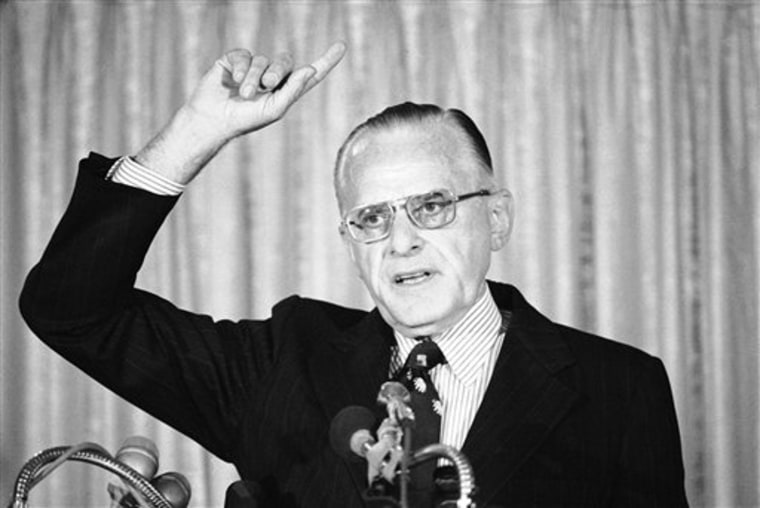Earl L. Butz, an outspoken U.S. agriculture secretary forced from office in 1976 for making a racist joke and once a dean at Purdue University, died Saturday. He was 98.
Butz died at his son's home in Washington, D.C., said Randy Woodson, dean of Purdue's College of Agriculture. He said Butz had traveled to his son's home last week for a visit with family and had been in poor health recently.
"It's a big loss for Purdue and Indiana agriculture," he said.
The free-market advocate had a relaxed and earthy style that won him acclaim as an after-dinner speaker but caused problems in his public life.
Controversy began swirling around Butz after President Nixon appointed him secretary of agriculture in 1971. The farm economist figured in public disputes ranging from foreign grain sales to high meat prices.
He was forced to resign in October 1976 after telling an obscene joke that was derogatory to blacks.
The slur was overheard by John Dean, the former counsel to Nixon who was jailed in the Watergate scandal, and Dean's report on it was published in Rolling Stone magazine.
Two years earlier, Butz apologized to the Vatican after criticizing the Roman Catholic Church's stand on birth control by using a mock Italian accent while referring to the pope.
"Let's be honest, I'm controversial. I don't hesitate to speak my mind," he said at the time.
Butz was raised on a 160-acre livestock farm in northeastern Indiana. He later earned Purdue's first doctorate in agricultural economics. He joined the school's agricultural economics faculty, and rose to head the department.
Butz was assistant secretary of agriculture from 1954 to 1957, during the Eisenhower administration. He then returned to Purdue and was dean of the School of Agriculture for the next 10 years.
Butz maintained that farmers should rely on a free market driven by exports and not federal subsidies.
When world food prices soared in the 1970s, Butz gained the acrimony of environmentalists by urging farmers to "plant from fence row to fence row." Vegetation along fence rows were plowed and planted and wetlands tiled and drained.
